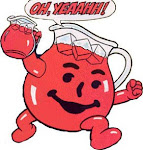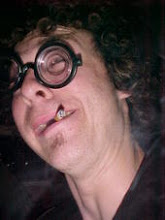
On October 25, 1946 the Mohamed Ali and Joe Frazier of 20th century Western intellectualism clashed in Cambridge over the nature of philosophy in a heated exchange that has become the stuff of legend.
The setting: The Moral Science Club, a weekly philosophical gathering of faculty and students held in the H3 room of Kings Campus.
In the red corner was guest lecturer Karl Popper, father of critical rationalism and chief architect of the philosophy of science. And in the blue corner, Philosophy Department Chair Ludwig Wittgenstein - eccentric genius, mystic and logician who revolutionized our understanding of how language relates to reality (even going so far as to claim that there are no philosophical problems, only linguistic puzzles).
A man of almost over-powering intellect whose intensity was at times disquieting, Professor Wittgenstein had a habit of dominating the discourse at H3 and regularly overshadowed the featured guests. On that particular week, Karl Popper, who was somewhat of an intellectual bully himself, had been invited to lecture on a paper he’d written entitled “Are there Philosophical Problems?”
Accounts from those present of what actually transpired differ. What is a agreed upon is:
- · the intensity of the brief exchange,
- · that Wittgenstein brandished a fire poker while arguing his claims
- · that when asked to give an example of a moral rule Popper said “not to threaten visiting lecturers with pokers.”
- · that the encounter ended when Wittgenstein walked out of the room.
According to Unended Quest, Popper’s memoir, it was Wittgenstein who asked for an example of a moral rule and, upon hearing Popper’s quip about threatening guest lecturers angrily left the room.
According to others present, however, the question of moral rules was posed by a student after Wittgenstein had left. ( And, it is well documented that Professor Wittgenstein regularly picked up the fire poker, and often left the discussion abruptly when he tired of what was being discussed.)
The whole encounter lasted a scant 10 minutes, so this book can be thought of as a kind of investigative philosophical journalism that seeks to understand the event within a larger context of the two icon’s differing approaches to philosophy and the state of modern western thought in general, set against the backdrop of ravaged post-war Europe .
Through exhaustive research - interviews, correspondences and diary entries, etc. - the authors essentially construct parallel biographies, which circle back to that autumn night in Cambridge.
In the process we are treated to a particularly rich view of early 20th century Vienna, where both men were were born and raised - products of a Jewish culture struggling to adapt in the transition from Austria-Hungarian empire to Nazi fascism.
Popper’s upbringing, though solidly middle class, was fraught with difficulty and he always viewed himself as the intellectual outsider, even after his rise to pre-eminence at the time of the Cambridge encounter.
Wittgenstein was the son of one of the richest men in Europe. His intellectual aura was said to be “incandescent” and he seemed to succeed breathtakingly in everything he tried his hand at. As an engineer, he patented a functioning prototype of a jet engine. As a volunteer soldier fighting on the front lines of World War I he was decorated several times. As a young man in his 20s he wrote what would become one of the century’s most important philosophical works Tractatus Logico-Philosophicus (he was already a star by the age of 30). He even designed and built a house for his sister at one point. After returning from the war and having solved the puzzle of philosophy, he rejected his aristocratic pedigree, opting for the life of an ascetic. He retreated to the countryside and lived as a school teacher for years until he was coaxed back to philosophy by Moritz Schlick.
Betrand Russell was there as well that evening playing the role of moderator. Edmonds and Eidinow devote an entire chapter to Russell (The Thrid Man) and his connection to both men – concluding that the encounter probably would not have taken place if not for the famous logician. Russell was instrumental in both Wittgenstein and Popper arriving in England. A 22-year-old Wittgenstein, who had become enthralled in the philosophy of mathematics, sought the aging Russell out as a mentor. And Russell felt he had found his intellectual heir in Wittgenstein. But, in short time, the roles of teacher and student reversed. “Wittgenstein makes me feel it is worth while that I should exist, because no one else could understand him or make the world understand him,” Russel wrote. His relation to Popper on the other hand was tangential , but Russel did recommend him for a job at Canterbury University College in New Zealand, when Popper was desperately trying to flee Nazi Austria.
So, did Popper lie in his autobiographical account of that night? It was the firestorm of controversy after the publication of Unended Quest that ultimately resulted in Wittgenstein's Poker.
Again the authors explore the context for possible answers. Being Viennese, Popper certainly knew all about the famous Wittgenstein family long before Ludwig’s rise to prominence. Furthermore, Popper’s adopted outsider-status was in part due to his perceived exclusion of the Vienna Circle which claimed The Tractatus Logico-Philosophicus as its bible and Wittgenstein its patron saint. This fueled Popper's crusade against the Logical Positivism movement, which he would ultimately vanquish (in his opinion at least). What all this amounts to the authors seem to imply, is that Popper arrived at H3 with something to prove.
Wittgenstein by contrast, had apparently never heard of Popper prior to the confrontation, and according to exerts from his diary, had more pressing concerns on his mind that evening. So the answer, it seems, is that in Popper’s recollection this was a defining moment – the culmination of a lifetime’s struggle against an illusive adversary in which he’d emerged triumphant. For Wittgenstein, it was just another Moral Science session, albeit one flawed by some unusually stubborn upstart who refused to back down.
Regardless, the book provides a nice window into 20th western thought and is accessible even to those not philosophically inclined.













No comments:
Post a Comment